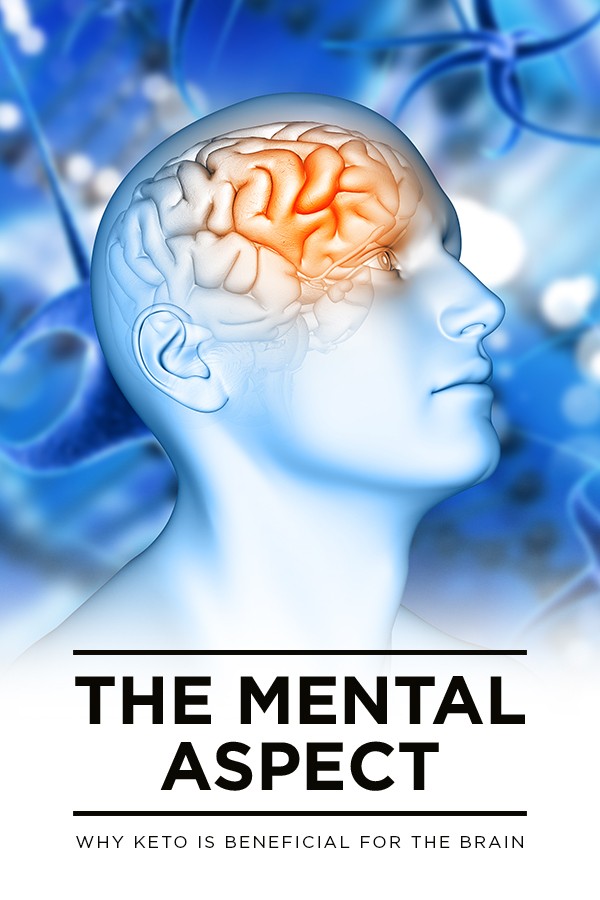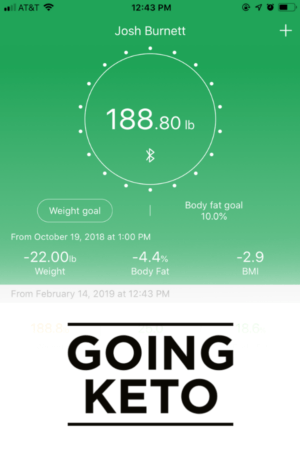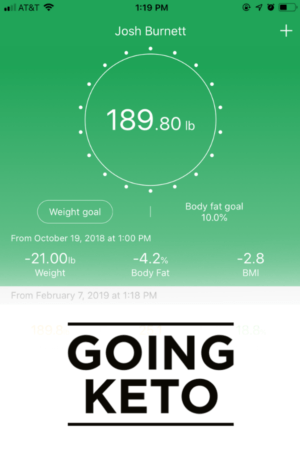When I first started investigating keto, I didn’t really need to lose any weight. Sure, I was a few pounds overweight, but when I approached my doctor about running initial blood tests to have a baseline before I started, he asked me: “You’re in good shape—why do you need to go on a diet?”
My answer was simple: it wasn’t the weight loss that appealed to me—it was all of the benefits that came along with it. As someone who wants to be in top mental shape, all of the positive aspects of the diet for brain health intrigued me. I’ve briefly summarized some of the research below; I’ll wrap up by telling you how it’s affected me.
The diet was invented to improve brain health
The source of the keto diet was a treatment for epilepsy and has been very effective. Although this condition is generally treated with anti-seizure medications today, a certain percentage of epileptic patients have symptoms that don’t respond to any seizure drugs. Many of these patients have found success by following the ketogenic diet. Check out the quote from this study1, for example:
“Very-low-carbohydrate diets or ketogenic diets have been in use since the 1920s as a therapy for epilepsy and can, in some cases, completely remove the need for medication. From the 1960s onward they have become widely known as one of the most common methods for obesity treatment. Recent work over the last decade or so has provided evidence of the therapeutic potential of ketogenic diets in many pathological conditions, such as diabetes, polycystic ovary syndrome, acne, neurological diseases, cancer and the amelioration of respiratory and cardiovascular disease risk factors. The possibility that modifying food intake can be useful for reducing or eliminating pharmaceutical methods of treatment, which are often lifelong with significant side effects, calls for serious investigation.”
More efficient brain function
Studies2 have shown that brain cells operate up to 70 percent more efficiently when they run on ketone bodies instead of using glucose as fuel. Technically speaking, your liver converts long- and medium-chain fatty acids into a ketone called “beta-hydroxybutyrate,” or BHB. Brain cells love BHB. This makes sense because the brain itself is comprised of 60 percent fat.
Keto enhances memory
This study3 found a correlation between the ketogenic diet and improved memory, specifically in adults with mild cognitive impairment who were at increased risk for Alzheimer’s disease. The specific mechanism that seemed to be responsible was the correlation between decreased carbohydrate intake leading to hyperinsulinemia.
Another effect that has been repeatedly observed is decreased brain cell death in patients with Alzheimer’s and Parkinson’s diseases when on the ketogenic diet.4,5,6,7,8,9,10
It can be used as part of a treatment regimen for brain cancer
A 2003 study published in the British Journal of Cancer11 found that the ketogenic diet was a legitimate alternative therapy for brain cancer. The reason is simple: while the brain can feed off either ketones or glucose as fuel, cancer can’t run on ketones—in the presence of glucose, however, it thrives. The diet itself acts an antiangiogenic, meaning that it inhibits the growth of cancer by starving it of what it needs to grow. This was further reinforced by a 2008 study conducted by Boston College.12
Both of these studies were inspired, in part, by a 1995 experiment at University Hospitals in Cleveland,13 where two young girls with advanced-stage brain cancer that hadn’t responded to chemotherapy were treated with the ketogenic diet. After eight weeks, glucose uptake at the tumor site decreased by an average of 21.8 percent in both subjects. Other observed results included improvements in mood and skill development. One subject remained on the diet for another 12 months, during which time the disease did not progress.
While keto should not be viewed as a cure for cancer, it can be incredibly beneficial for slowing or even stopping cancer growth, giving traditional medical treatments (chemotherapy, radiation, surgery) more time in which to work. It has also been shown to enhance the effects of chemotherapy and radiation14 by selectively sensitizing cancer cells and making them more susceptible to treatment by these methods.
It can be used as an alternative treatment for ADHD
Attention-deficit/hyperactivity disorder has no known cure, and traditional therapies utilize various medications as the central pillar of their approach. Many have questioned whether medication is the best philosophy of care since adults who have been diagnosed with ADHD make up a disproportionate amount of substance abusers.15
Recognizing the number of studies that have demonstrated the positive effects keto has on brain health, researchers tested the potential of the diet to treat ADHD in this study,16 which resulted in a significant improvement in symptoms.
It’s a unique approach to treating migraines and cluster headaches
Low-carb diets can be used to treat migraines and cluster headaches, as shown in this landmark study.17 The effects were significant, decreasing cluster headaches from between 100 and 120 per month in test subjects to between 20 and 40. The primary mechanism observed was an increase in dopaminergic activity, which was confirmed by the results of this study.18
This study19 specifically focused on migraines and found a significant decrease in headaches across the 147 subjects in the test group, concluding that “…low glycemic index diet intake can be an effective and reliable method to reduce migraine attacks.”
My own experience
While keto shouldn’t be treated as a panacea or magic bullet by any means, it has been repeatedly shown through a number of peer-reviewed, scientific studies to be incredibly beneficial for brain health.
I struggle with depression and anxiety, both of which have experienced a marked decrease during my time on keto. My mental clarity is steady throughout the day: I haven’t experienced brain fog since the first week, and my emotional reactions to energy needs (i.e., being “hangry”) have virtually disappeared.
I thoroughly enjoy what keto is doing to my body, but the decision to make this a lifestyle choice has far less to do with the physical aspects than it does the mental. I’m hooked—in a good way.
NUTRITIONAL DISCLAIMER
The content on this website should not be taken as medical advice and you should ALWAYS consult with your doctor before starting any diet or exercise program. We provide nutritional data for our recipes as a courtesy to our readers. We use Total Keto Diet app software to calculate the nutrition and we remove fiber and sugar alcohols, like erythritol, from the total carbohydrate count to get to the net carb count, as they do not affect your blood glucose levels. You should independently calculate nutritional information on your own and not rely on our data. The website or content herein is not intended to cure, prevent, diagnose or treat any disease. This website shall not be liable for adverse reactions or any other outcome resulting from the use of recipes or recommendations on the Website or actions you take as a result. Any action you take is strictly at your own risk.
- The Brain’s Role in Weight Loss - March 11, 2019
- Making Fat Loss EPOC - March 8, 2019
- Overcoming Plateaus - March 6, 2019




